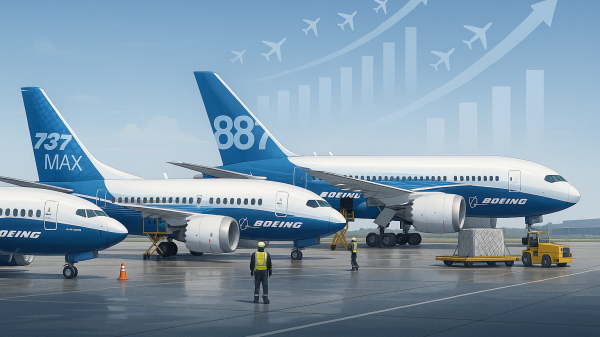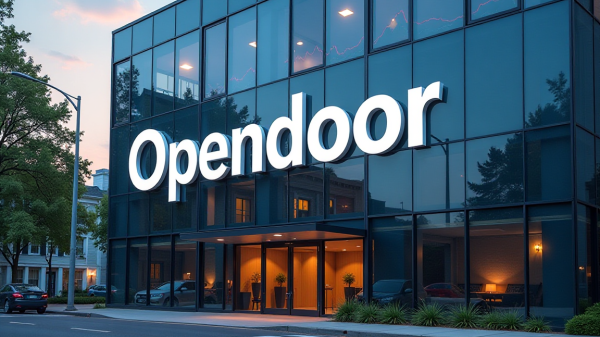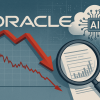Pfizer acquires Metsera for $10 billion, cementing their new obesity treatment strategy.
The purchase concludes a weeklong bidding frenzy between the New York-based pharmaceutical company and Danish heavyweight Novo Nordisk, whose last-minute counterbid was finally rejected by US antitrust regulators.
According to Reuters, Metsera’s board accepted a higher offer from Pfizer on Friday, citing regulatory concerns over the Novo Nordisk bid.
The deal gets Pfizer into a fast-growing part of the pharmaceutical sector that has emerged as one of the industry’s most profitable new battlegrounds.
Metsera’s experimental drugs are still years away from the market, but the acquisition reflects the aspiration at Pfizer to move past its pandemic-related business lines and back toward sustained long-term revenue growth.
According to the implications of the agreement, Pfizer is expected to give $86.25 for each stock, 3.69% higher than that of Metsera’s latest closing price.
The proposal consists of $65.60 per share in cash and a milestone-based contingent value right of up to $20.65 per share, depending upon future regulatory milestones and sales.
Novo Nordisk steps aside following regulatory concerns
Novo Nordisk, best known for its weight-loss medications Wegovy and Ozempic, said on Saturday that it was withdrawing from the competition.
The business indicated that, while it saw strategic value in acquiring Metsera, it was unwilling to increase its offer further due to “unacceptably high legal and regulatory risks” under US antitrust investigation.
Novo’s exit demonstrates increasing regulatory sensitivity to consolidation in the obesity medicine business, which has become dominated by a small number of competitors.
According to industry observers, a merger between Novo Nordisk and Metsera may have been closely scrutinised by competition regulators, notably in the United States, where obesity treatments have emerged as a public health and economic priority.
The failure of Novo’s proposal puts Pfizer in a position to confront both Novo Nordisk and Eli Lilly, which are now the market leaders with highly profitable GLP-1-based treatments.
Analysts believe Pfizer’s participation will increase innovation and pricing competition in an industry expected to have a global market value of $150 billion by the early 2030s.
Strategic stakes and market reaction
The speculation surrounding the acquisition elevated Metsera in terms of its market profile.
Its shares gained nearly 60 per cent in the days following Novo’s unsolicited offer, giving it a value of around $8.75 billion before Pfizer’s final agreement was revealed.
For Pfizer, the transaction represents a significant gamble on the future of metabolic disease.
Analysts anticipate that Pfizer has to produce over $11 billion in sales from Metsera’s assets by 2040 to make the deal profitable.
This is more than double the company’s internal forecasts.
Still, the top brass is seeing the acquisition as a way to get away from just the COVID-19 business and build a stronger obesity franchise too, an area where it has historically struggled to gain traction.
A battle echoing pharma’s historic takeovers
The heated rivalry for Metsera has prompted similarities to other industry-defining mergers.
Observers draw comparisons with Pfizer’s 2000 acquisition of Warner-Lambert, which obtained control of Lipitor, a blockbuster cholesterol medicine that went on to earn tens of billions of dollars in revenue.
While the Metsera transaction is far smaller, it shows a similar strategic imperative—an attempt to secure future growth drivers in a highly competitive therapeutic area.
Metsera’s major therapeutic prospects include MET-097i, a GLP-1 injectable, and MET-233i, an amylin-like treatment for appetite and metabolic regulation.
Leerink Partners analysts predict that if both therapies receive regulatory approval and commercial success, their combined peak yearly sales might reach $5 billion.
The acquisition also represents a broader change in global pharmaceuticals toward metabolic illness research, which was previously thought to be too complicated for long-term investment.
With global obesity rates rising and patient demand for weight-loss treatments increasing, Pfizer’s latest move demonstrates an aggressive commitment to influencing the next phase of this burgeoning market.
The post Pfizer clinches $10 billion Metsera deal, outbidding Novo Nordisk appeared first on Invezz




































